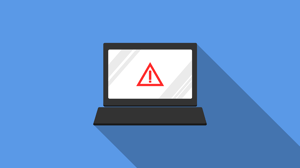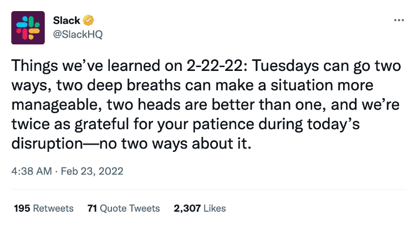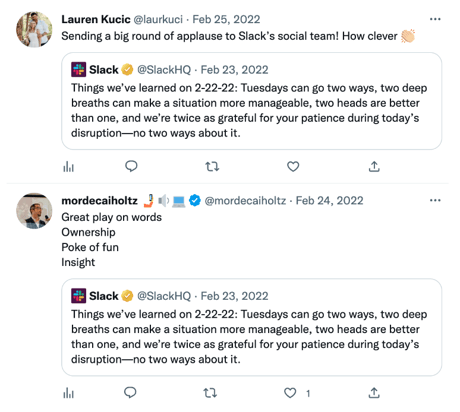
5 Examples of Social Media Crisis: What Can We Learn?
Social media can be a powerful tool for businesses and organizations to connect with their target audience and build relationships. However, it can also be a source of crisis.
No matter how long you’ve been working in social media without issue, the day may arrive when something goes wrong. One of the ways to prepare for a crisis is to know what other brands have done to overcome such situations.
In this blog post, we'll explore 7 examples of social media crises and discuss what we can learn from them. By understanding how these crises occurred and how they were handled, we can avoid similar issues in the future.
Here are 5 brands that turned their crisis into a successful rebound.
KFC - Transforming a crisis into an opportunity to build greater customer loyalty
When KFC ran out of chicken in most of their 870 UK and Ireland restaurants due to a series of events leading to delivery delays from their warehouses, the world was given a valuable lesson in crisis management.
In response, their PR and marketing team immediately put out creative ads with the KFC logo on the bucket rearranged cleverly to “FCK” to reflect the company's own recognition of their mistake. They kept customers informed of the chicken status of their local restaurants through a page on their website, and provided updates through social media almost daily.
By responding transparently, promptly, and in a way that was true to their brand voice, KFC was able to quell any potential backlash and instead received admiration and increased loyalty for their humility.
Southwest Airlines - Demonstrating the human touch in a time of tragedy
Southwest Airlines is one of those brands that has a great reputation among many people. Their service is of high quality, their staff is friendly, and their flights are more affordable. Additionally, they were the top rated airline in terms of safety up until April 2018.
On April 17, 2018, Flight 1380 had to make an emergency landing in Philadelphia due to an engine explosion which ripped open the fuselage. This tragically resulted in the death of a passenger. Other passengers captured footage of the experience, providing those on the ground a glimpse of the raw fear experienced by those on the plane.
The fantastic crew on board was able to prevent any further tragedies and land the plane, but by the time it hit the tarmac, the company had a crisis to address. Gary Kelly, CEO of Southwest, and his team then worked quickly to reach out personally to all passengers and offer no-strings attached monetary assistance, as well as provide them with travel arrangements, trauma counseling, and other support so that investigations into the incident could begin as soon as possible.
Meanwhile, they pulled advertising from social media and Southwest's social media team kept extra tabs online for real-time information to find out exactly what people were saying, posting, and expressing. In this tragedy, Southwest chose not to take a robotic approach of issuing blanket statements on social media. Instead, they chose the human touch to reach out one on one to those affected, while remaining respectfully quiet on social media and monitoring public sentiment.
Slack - Keeping customers informed in a transparent, timely way
In February 2022, Slack, an online messaging application, experienced a major outage that left many users unable to access the platform. After the issue was identified, Slack provided regular updates to users via their status page approximately every half hour.

Additionally, they took to Twitter to issue a sincere apology to those impacted by the outage, which garnered many Likes, Retweets, and lots of praise for the brand’s approach, even though the outage affected precious working time.

Slack’s approach serves as a reminder to brands to be transparent, honest, and as accessible as possible.
Starbucks - Using a crisis as an opportunity for improving business practices
In April 2018, two black men who were waiting for a friend in a Philadelphia Starbucks were arrested after a store manager called the police on them, causing an uproar and garnering national attention. Naturally, the incident also went viral on social media.
In response, Starbucks CEO Kevin Johnson apologized and acknowledged that the arrest “should not have happened”. Starbucks also announced that the manager involved in the incident was no longer working at the store, and that all 8,000 company-owned stores across the United States would close for one afternoon to provide a racial bias training to employees the following month.
The company's quick response to the situation allowed them to reclaim and take control of the narrative. People ended up talking about Starbucks’ response in a largely positive way, instead of focusing on the unfortunate incident. The company also made a smart move by issuing an immediate response from their CEO, but having a “cooling down” period of a month before making news again with their attempt to right the wrong.
Tide - Leveraging star power to educate through social media
It’s hard to believe that anyone would be tempted to eat a Tide laundry detergent pod. But when you combine the FOMO effect of social media with impulsive teenage behavior, you get a recipe for hospitalizations associated with your brand. When the 2018 Tide Pod challenge became a phenomenon on YouTube, a large number of teenagers ended up in the hospital, with hundreds of teenagers attempting to ingest a pod.
In response to this, Tide launched a social media campaign starring football star Rob Gronkowski discouraging people from this deadly challenge. By leveraging the popularity of a famous and respected sports figure, the brand attempted to make the Tide Pod challenge seem foolish and uncool among teenagers.
These 5 examples show that while sometimes, social media crises are inevitable, dealing with them in a smart way is the key to retaining customer loyalty. It is always better to own up to a mistake and apologize than to try to hide it.
